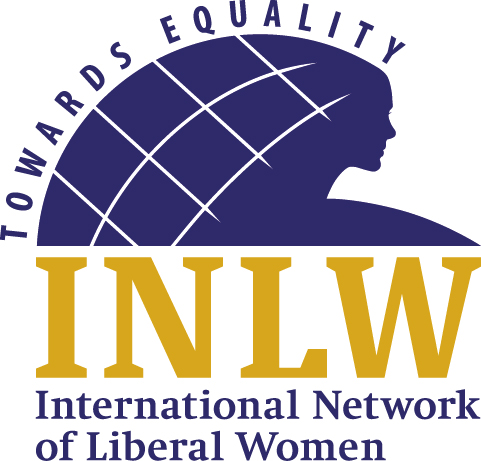The 67th session of the United Nations Commission on the Status of Women (CSW67) was held from March 6-17 at the United Nations headquarters in New York City. We hereby give you some parts of the speeches that were given at the opening session and also at the International Women’s Day. Also some of the conclusions at the end of CSW from Ms. Amina J. Mohammed.
There was a warm welcome of secretary-general Gutierrez at the opening of CSW “Today, women make up under a third of the workforce in science, technology, engineering, and maths. When women are under-represented in developing new technologies, discrimination may be baked in from the start.”

“Women and girls are leading efforts to make science and technology accessible, inclusive, and safe. Women and girls will not be silenced. Their demands for their rights and freedoms echo around the globe. The Commission on the Status of Women is a dynamo and catalyst for the transformation we need. Together, let’s push back against misogyny and forward for women, girls and our world.”
— António Gutierrez.
The speech of Ms. Sima Bahous, under-secretary-general at the UN and executive director of UN women gave CSW a good and inspiring start.
The priority theme of this CSW this year was about innovation and technological change, and education in the digital age for achieving gender equality and the empowerment of all women and girls.

As Sima Bahous said: “We live in a world of interconnected crises. At the heart of every crisis, we see inequalities multiply. We now have a new form of poverty confronting the world. Digital poverty is growing and intensely gendered.
Technology and innovation are game changers. They offer huge potential benefits. If used wisely they can bring us back on track for the SDGs and a more peaceful world. If misused, they can derail our efforts. This is the choice. Technology and innovation are enablers. What they enable is up to us”.

“We have to realize that at the moment a new kind of poverty now confronts the world, one that excludes women and girls in devastating ways—that of digital poverty. The digital divide has become the new face of gender inequality, which is being compounded by the pushback against women and girls that we see in the world today”. A clear warning for all of us about the importance of leaving no one behind!
We also attended the opening of Women’s Day, some short parts of the speech on the UN Commemoration of International Women’s Day, 8 March 2023, by Ms. Sima Bahous,
“Social media, blockchain and open-source technology have aided relief efforts following the earthquakes in Turkey and Syria. Women farmers across Africa and Latin America are seeing their livelihoods transformed with digital tools. Across the world, mobile banking has connected women to their own bank accounts, unlocking both financial inclusion and economic opportunity. And yet, the gender digital divide has become the new face of gender inequality. It compounds existing inequalities, disproportionately excluding women and girls in low-income settings, women migrants, older women, women living in rural areas and those with disabilities”.

“We must assert that digital rights are women’s rights. We must and we can reassert human agency over technology; demand the centrality of the feminist principles of inclusion, intersectionality, and systemic change; and ensure accountability so that technology-facilitated gender-based violence in all its forms ends once and for all”.

In the morning of the International Women’s Day celebrations, Anita Bhatia, the Deputy Executive Director of UN Women, was invited to participate in the bell-ringing ceremony at the NASDAQ. In addition, the UN Commission on the Status of Women (CSW) and the Inter-Parliamentary Union (IPU) have released the 2023 edition of the “Women in Politics Map,” which shows data on women’s political representation worldwide.

As of January 1st, 2023, the new data shows that women’s voices and experiences are still underrepresented. Less than a quarter of cabinet ministers globally are women, primarily in gender equality and women’s rights-related policy areas, while men still dominate in powerful investment portfolios such as the economy, defense, and energy. Furthermore, women only hold 11.3% of the highest political leadership positions globally, as heads of state, and 9.8% as heads of government. The new data also reveals that women’s representation in parliaments worldwide has risen to 26.5%, up from 25.5% in 2021.
At the closing ceremony of CSW67 on March 17th, Ms. Amina J. Mohammed, United Nations Deputy Secretary-General and Executive Director of UN Women, revealed in her closing remarks that this year’s Commission on the Status of Women has established an important milestone: We have jointly formulated a global normative framework on gender equality, technology, and innovation, which will shape the lives of women and girls around the world.
The Commission calls upon the United Nations Entity for Gender Equality and the Empowerment of Women (UN-Women) to continue to play a central role in promoting gender equality and The empowerment of all women and girls and in supporting Governments and national gender equality mechanisms, upon their request, in coordinating the United Nations system and in mobilizing civil society, the private sector, employers’ organizations and trade unions, and other relevant stakeholders, at all levels, in support of the full, effective and accelerated implementation of the Beijing Declaration and Platform for Action and the gender-responsive implementation of the 2030 Agenda for Sustainable Development towards achieving gender equality and the empowerment of all women and girls in the context of innovation and technological change, and education in the digital age.
At the end of the first week we also held our postponed General Meeting. At this meeting our vice-president Maysing Yang ended her board membership and was appointed in our Consultative Committee.


 Visit our Facebook page
Visit our Facebook page